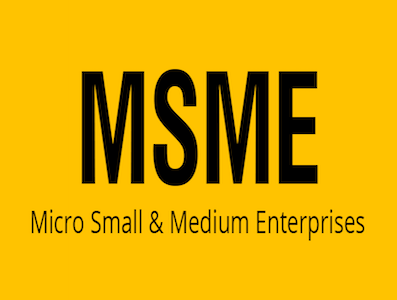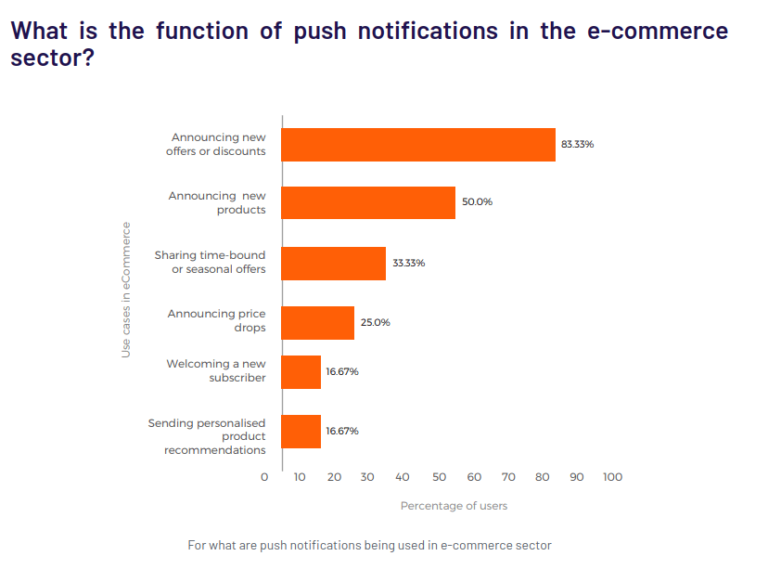
MSME employment in India accounts for more than 45 percent of total domestic industrial employment, making it the economic backbone of the nation. MSME is an acronym that stands for Micro, Small, and Medium Enterprises. Companies in a nation include service corporations, manufacturing firms, and commercial organisations. But the government hasn’t thought about making all businesses MSME.
So, don’t you want to know more about small and medium-sized businesses? If this is the case, you should feel lucky because we have all the information and the latest updates in one place.
Also Read: How e-Commerce Contributes To MSME Growth
List of MSME Businesses
Table of Contents
- Leatherette goods.
- Moulding – This category contains items such as umbrella frames, combs, plastic toys, and so on.
- Natural Flavours and Fragrances
- Coaching for finding a job and running a business.
- Institute for Training and Education
- Pumps that use less energy.
- Xeroxing.
- Crèches and a beauty salon
- Garages and auto repair shops
- Clinics for X-Rays
- Tailoring.
- Leasing and renting of equipment
- Photographic studio.
- Agricultural Farm Equipment Servicing This covers tractor repairs, pump repairs, and ring boring machines.
- Back-office operation using computerised data.
- Booths for STD/ISD.
- Low-capital retail trade.
- Dish Antenna and Multi-Channel Dish Cable T.V.
- Dry cleaning and laundry
- Durable Metallic Ware.
- Products for Automotive Electronic Components
- Security and electronic surveillance
- Engineering, Mechanical Except for transportation equipment. This includes steel almirahs, cocks and valves, wire cutters, and so on.
- Fabrication and engineering
- VCRs, recorders, radios, transformers, motors, and watches
- Plant Micronutrients.
- Ayurvedic products and active pharmaceutical ingredients
- Khadi and hosiery products are available.
- Spinning, weaving, and artisans are examples of handicraft activity.
- Printing and other paper-based goods
- The Coir Industry.
- Wooden furniture and items
- Farming of poultry.
- Parts for bicycles
- Items of stationery
- Contact the call centre.
- Rubber Goods.
- Provider of IT Solutions Creating a server bank, application service provider, smart card modification, service provider, and other services are examples of services.
- Industrial testing labs
- Components of automobiles Horn buttons, door channels, wiper blade components, and a battery cell tester are all included.
- Roofing tiles, glass flooring tiles, granite, and other ceramics and glass items are examples.
- Retail and wholesale operations
Shri Nitin Gadkari, who is the Minister of MSME, Road Transport, and Highways, changed the rules for MSMEs in order to help the MSME sector. Retail and wholesale firms are now part of the MSME sector.
Thanks to the new rules, both retail and wholesale businesses can now sign up on the Udyam Registration Portal. Use Priority Sectors financing in line with RBI rules for MSME loans and restrictions on lending.
This is an up-to-date list of the MSME companies that must follow the MSME Act. You must now have a NIC code in order to sign up for MSME. Just what is a NIC code? Let us investigate.
Also Read: Guide To MSME Project Profiles In India
What is a NIC Code?
The National Industrial Classification Code (NIC) is a code that is used to register Udyog Aadhaar, Limited Liability Partnerships (LLPs), and businesses.
When you fill out a form for the Udhyog to register your company as an MSME, you will need the code. This is needed, along with other important information like the number on your Aadhaar card, your phone number, your email address, and the details of your bank account. Also, the NIC number in MSME is a code with two to three numbers. The two- to three-digit code shows the set of things a company does. A four-digit code tells you what kind of business activity it is, while a five-digit code tells you what kind of business activity it is.
On July 17, 2020, the Indian government gave an order. A recent Government decision says that this is the full list of MSME firms.
Some acts (NIC codes) for Udyog Aadhar Memorandum registration are not covered by the MSMED ACT, 2006. A new order from July 17, 2020, just changed the list, and it’s important to note that the following businesses and activities would not be considered MSME.
They are all listed below —
- Forestry and logging
- Aquaculture and fishing
- Domestic employees are employed as a result of household operations.
- Acts of organisations and bodies outside of their own territory
- Undifferentiated production of products and services for personal consumption by individual homes.
The Ministry of Micro, Small, and Medium Enterprises says that other things like craft hunting and animal production are also illegal, with one exception.
- The process of egg production.
- There are poultry hatcheries in operation.
- Beekeeping, honey production, and beeswax production are all examples of beekeeping.
- Cocoon creation and silkworm rearing
- Agriculture irrigation equipment operation
- Animal breeding businesses should be supported.
- Crop preparation for key markets.
- Washing, ginning, and cleaning cotton
- Tobacco leaf preparation
- Other agricultural tasks after harvest
- Seed preparation for propagation
Also Read: Everything MSMEs Need To Know About GST
Why Do Certain Companies Not Make The List of MSME Businesses?
In its proclamation from June 2017, the government was unequivocal in stating that businesses that do not engage in manufacturing or provide services would not be considered MSME. On the other side, trading businesses work in the role of a go-between between customers and the manufacturers of the goods they purchase. Because of this, it is not something that is covered by the plan. Traders who produce and sell things that are unique in some manner might, nevertheless, become recognised as businesses in their own right. MSME allows for registration by any business that not only sells a product, but also offers supplementary services related to that commodity.
Meta Title: Businesses that are considered under MSME
Meta Description: MSME employment accounts for more than 45% of India’s industrial employment, making it the economic backbone.
MSME employment in India accounts for more than 45 percent of total domestic industrial employment, making it the economic backbone of the nation. MSME is an acronym that stands for Micro, Small, and Medium Enterprises. Companies in a nation include service corporations, manufacturing firms, and commercial organisations. But the government hasn’t thought about making all businesses MSME.
So, don’t you want to know more about small and medium-sized businesses? If this is the case, you should feel lucky because we have all the information and the latest updates in one place.
Also Read: Highlights of The MSME Budget 2022-23
List of MSME Businesses
- Leatherette goods.
- Moulding – This category contains items such as umbrella frames, combs, plastic toys, and so on.
- Natural Flavours and Fragrances
- Coaching for finding a job and running a business.
- Institute for Training and Education
- Pumps that use less energy.
- Xeroxing.
- Crèches and a beauty salon
- Garages and auto repair shops
- Clinics for X-Rays
- Tailoring.
- Leasing and renting of equipment
- Photographic studio.
- Agricultural Farm Equipment Servicing This covers tractor repairs, pump repairs, and ring boring machines.
- Back-office operation using computerised data.
- Booths for STD/ISD.
- Low-capital retail trade.
- Dish Antenna and Multi-Channel Dish Cable T.V.
- Dry cleaning and laundry
- Durable Metallic Ware.
- Products for Automotive Electronic Components
- Security and electronic surveillance
- Engineering, Mechanical Except for transportation equipment. This includes steel almirahs, cocks and valves, wire cutters, and so on.
- Fabrication and engineering
- VCRs, recorders, radios, transformers, motors, and watches
- Plant Micronutrients.
- Ayurvedic products and active pharmaceutical ingredients
- Khadi and hosiery products are available.
- Spinning, weaving, and artisans are examples of handicraft activity.
- Printing and other paper-based goods
- The Coir Industry.
- Wooden furniture and items
- Farming of poultry.
- Parts for bicycles
- Items of stationery
- Contact the call centre.
- Rubber Goods.
- Provider of IT Solutions Creating a server bank, application service provider, smart card modification, service provider, and other services are examples of services.
- Industrial testing labs
- Components of automobiles Horn buttons, door channels, wiper blade components, and a battery cell tester are all included.
- Roofing tiles, glass flooring tiles, granite, and other ceramics and glass items are examples.
- Retail and wholesale operations
Shri Nitin Gadkari, who is the Minister of MSME, Road Transport, and Highways, changed the rules for MSMEs in order to help the MSME sector. Retail and wholesale firms are now part of the MSME sector.
Thanks to the new rules, both retail and wholesale businesses can now sign up on the Udyam Registration Portal. Use Priority Sectors financing in line with RBI rules for MSME loans and restrictions on lending.
This is an up-to-date list of the MSME companies that must follow the MSME Act. You must now have a NIC code in order to sign up for MSME. Just what is a NIC code? Let us investigate.
Also Read: Highlights of The MSME Budget 2022-23
What is a NIC Code?
The National Industrial Classification Code (NIC) is a code that is used to register Udyog Aadhaar, Limited Liability Partnerships (LLPs), and businesses.
When you fill out a form for the Udhyog to register your company as an MSME, you will need the code. This is needed, along with other important information like the number on your Aadhaar card, your phone number, your email address, and the details of your bank account. Also, the NIC number in MSME is a code with two to three numbers. The two- to three-digit code shows the set of things a company does. A four-digit code tells you what kind of business activity it is, while a five-digit code tells you what kind of business activity it is.
On July 17, 2020, the Indian government gave an order. A recent Government decision says that this is the full list of MSME firms.
Some acts (NIC codes) for Udyog Aadhar Memorandum registration are not covered by the MSMED ACT, 2006. A new order from July 17, 2020, just changed the list, and it’s important to note that the following businesses and activities would not be considered MSME.
They are all listed below —
- Forestry and logging
- Aquaculture and fishing
- Domestic employees are employed as a result of household operations.
- Acts of organisations and bodies outside of their own territory
- Undifferentiated production of products and services for personal consumption by individual homes.
The Ministry of Micro, Small, and Medium Enterprises says that other things like craft hunting and animal production are also illegal, with one exception.
- The process of egg production.
- There are poultry hatcheries in operation.
- Beekeeping, honey production, and beeswax production are all examples of beekeeping.
- Cocoon creation and silkworm rearing
- Agriculture irrigation equipment operation
- Animal breeding businesses should be supported.
- Crop preparation for key markets.
- Washing, ginning, and cleaning cotton
- Tobacco leaf preparation
- Other agricultural tasks after harvest
- Seed preparation for propagation
Also Read: Major Challenges Faced By The MSME Sector And Their Impacts
Why do certain companies not make the list of MSME businesses?
In its proclamation from June 2017, the government was unequivocal in stating that businesses that do not engage in manufacturing or provide services would not be considered MSME. On the other side, trading businesses work in the role of a go-between between customers and the manufacturers of the goods they purchase. Because of this, it is not something that is covered by the plan. Traders who produce and sell things that are unique in some manner might, nevertheless, become recognised as businesses in their own right. MSME allows for registration by any business that not only sells a product, but also offers supplementary services related to that commodity.




